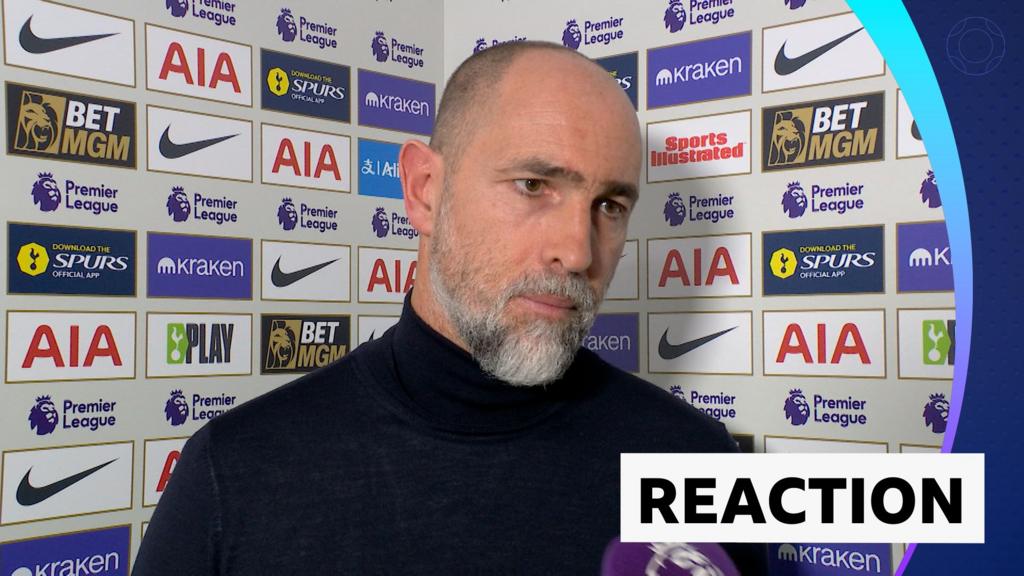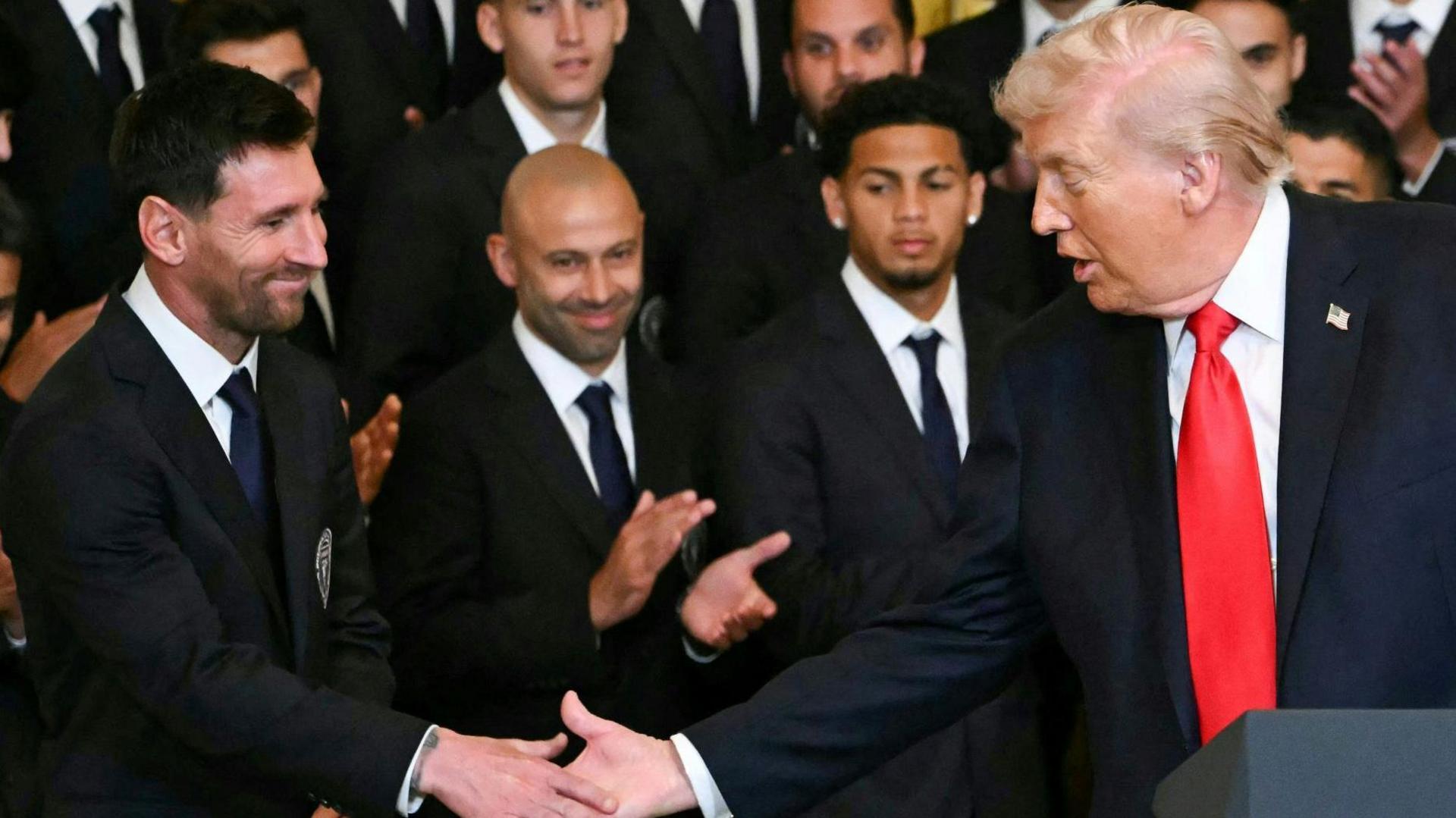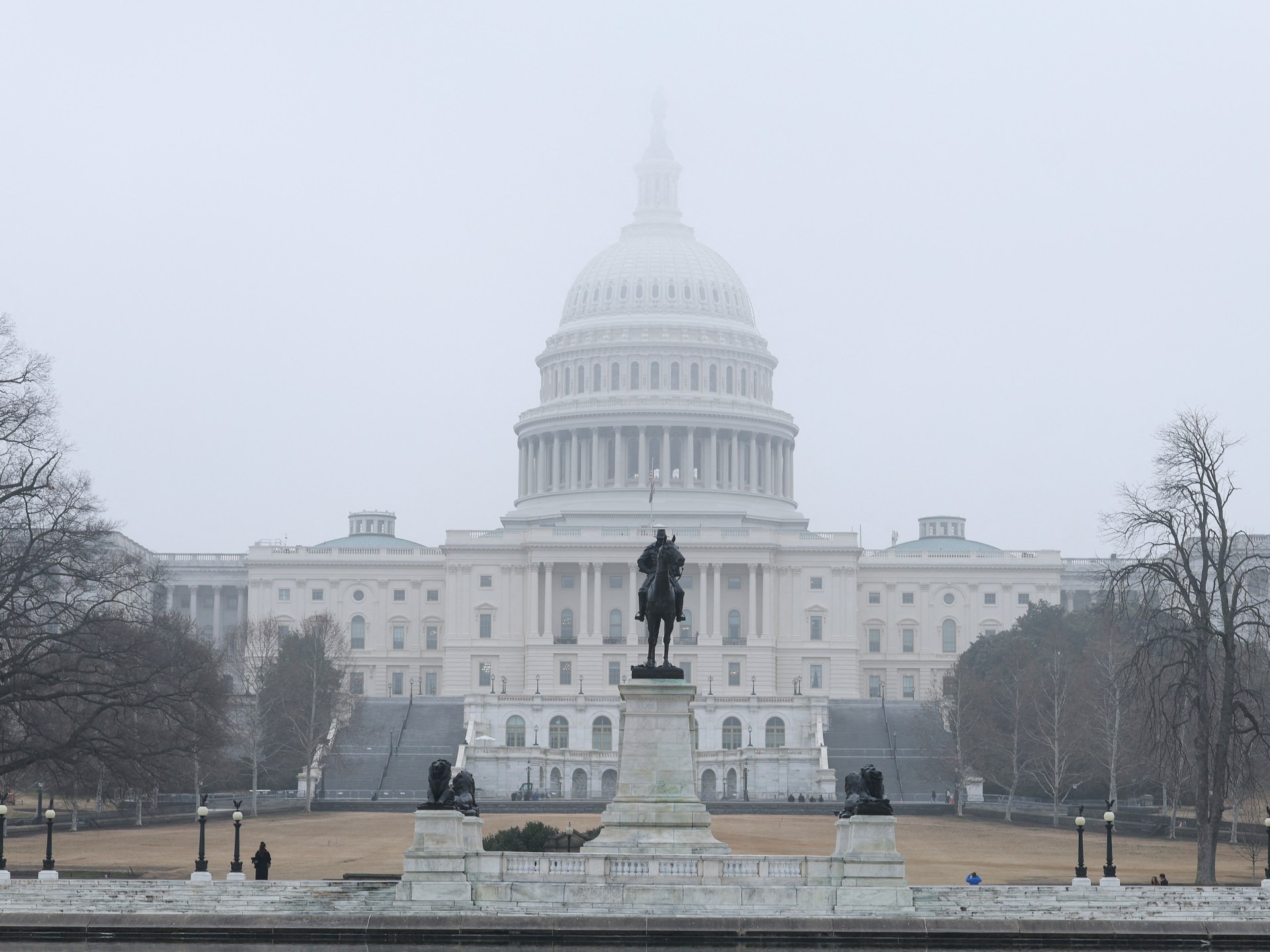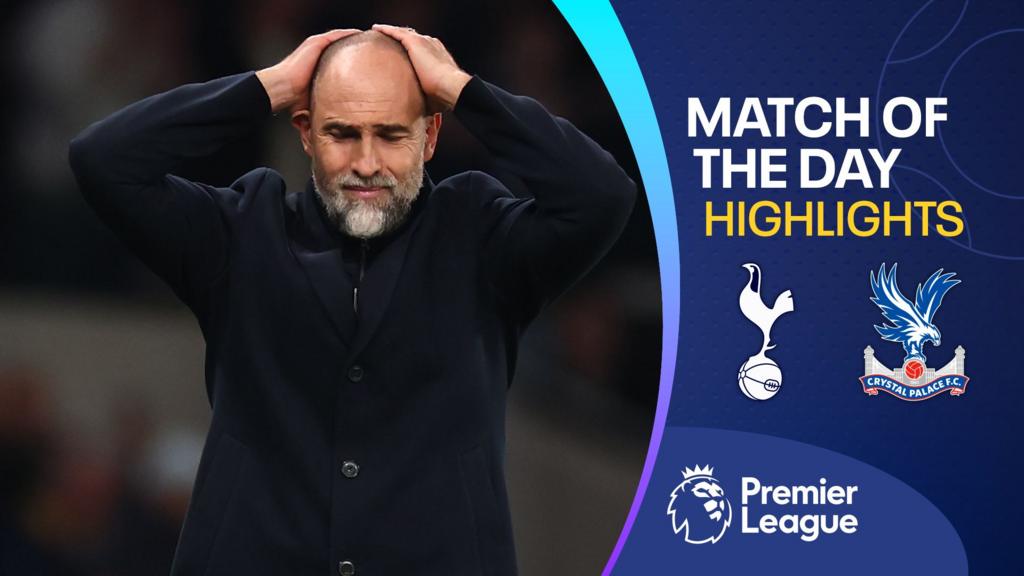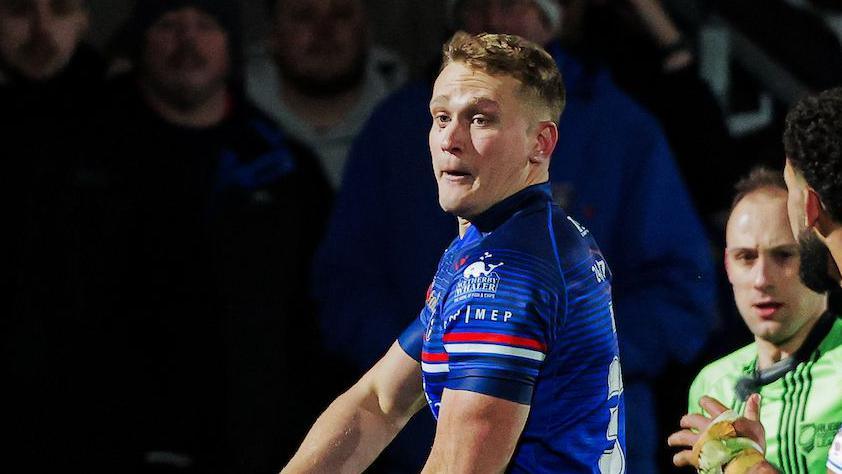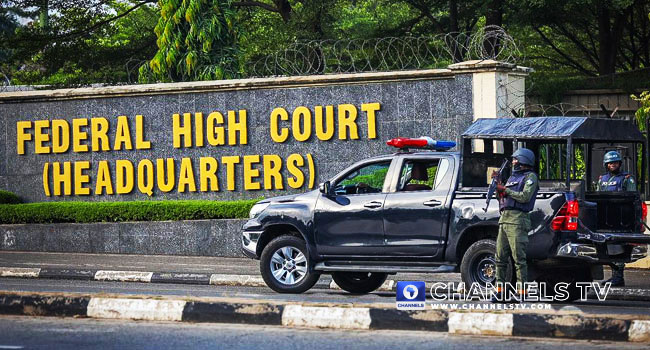Lionel Messi and his Inter Miami team-mates met United States president Donald Trump at the White House to commemorate the club’s MLS Cup triumph.
Inter Miami won the championship game of the nation’s top-flight division, Major League Soccer, for the first time back in December.
The club, co-owned by former England captain David Beckham, received an invitation to visit the White House before their MLS match against DC United in Washington on Saturday.
Messi and his team-mates stood on stage as Trump addressed the media, celebrating their achievement after providing an update on the ongoing US and Israeli strikes on Iran.
Trump said: “My son [Barron] said, ‘Dad, do you know who’s going to be there today?’ I said, ‘no, I’ve got a lot of things going on’.
“He said, ‘Messi!’ He’s a big fan of yours. He thinks you’re a great person and I think you got to meet a little while ago.”
Argentina icon Messi, 38, committed his future to Miami in October with a new deal until 2028.
The former Barcelona and Paris St-Germain forward became the first player in MLS history to win the Most Valuable Player award in back-to-back seasons.
Addressing Messi, Trump added: “Leo claimed the 47th trophy of his incredible career – the most of all time.




